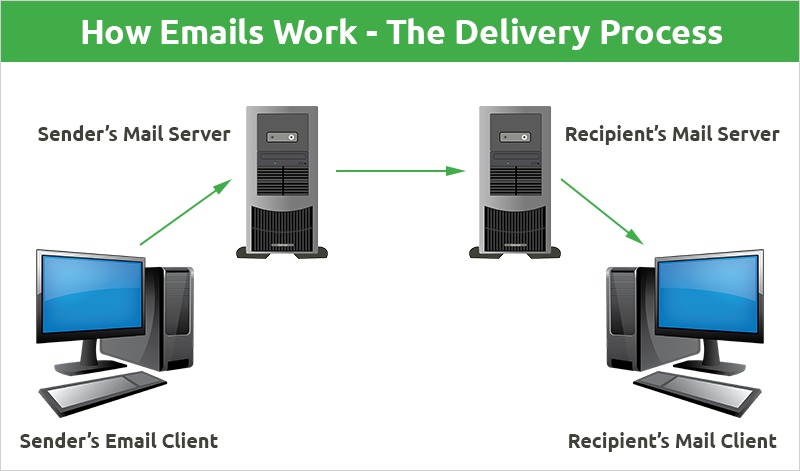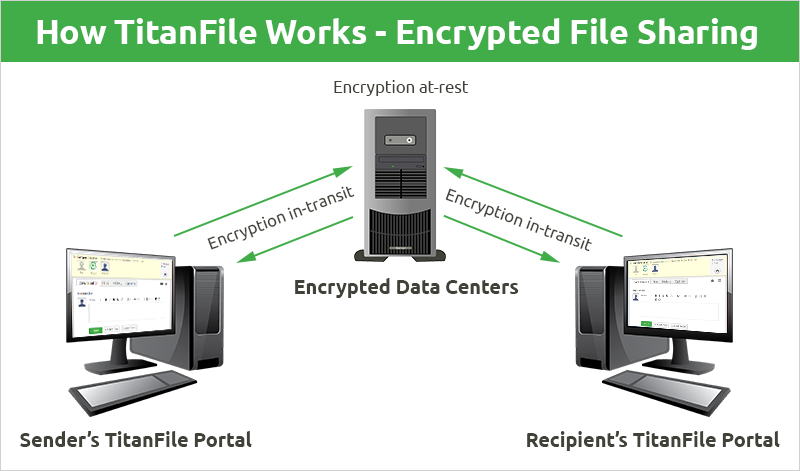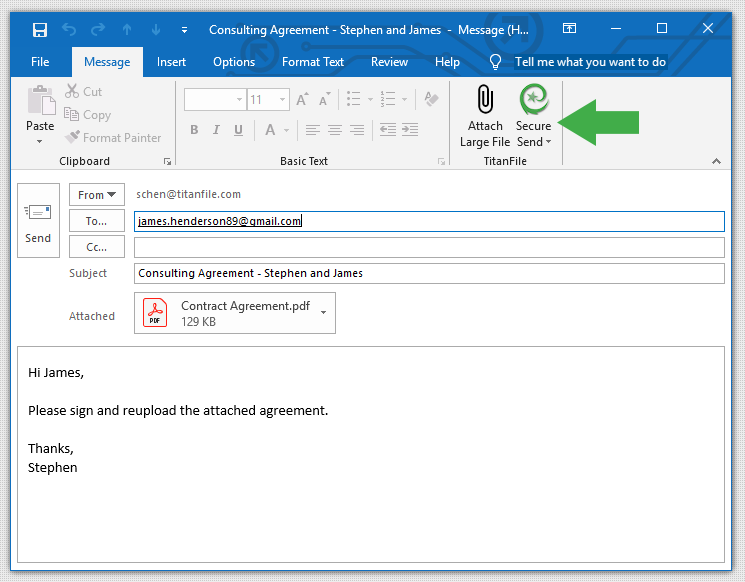How do email breaches occur?
Legal professionals have a need to regularly exchange confidential information with clients, associates, and other external parties. While there are many ways to share this sensitive information, emails are sometimes used because it’s convenient for both the sender and the recipient — resulting in quicker and more efficient correspondence.
However, the sad (and frightening) reality is that emails are not a secure form of communication and many legal professionals are putting confidential information at risk by continuing to send information by email.
Once an email is sent, it doesn’t follow a linear path to the recipient’s inbox. Here’s the actual email delivery process:
- The email leaves the sender’s email client and is sent to their mail server
- The sender’s email server sends the email to your recipient’s mail server
- The recipient’s mail server delivers the email to the recipient’s mail client
The illustration below is a visual representation of the process.

Since emails are not usually encrypted during any stage of the delivery process, unauthorized third parties can intercept emails and gain access to their contents. It’s similar to how a mailman can see the contents of a postcard.
Even if a law firm’s internal network is secured with the best security and privacy practices, it’s not guaranteed that the connection between the two exchanging email servers or the recipient’s network will be secure.
In order to reduce the risk of email data breaches at your firm, it’s better to avoid using email altogether when working with confidential information.
How law firms prevent email breaches
Being more aware of the security risks that come with email, law firms have been adopting TitanFile as their new secure file-sharing and collaboration platform.
TitanFile is not only just as easy to use as an email but also provides unparalleled security in regards to protecting confidential information. All files and messages shared through TitanFile are encrypted in-transit and at rest, preventing unauthorized access by third parties or persons. Since TitanFile is a two-way secure communication platform, legal professionals and their contacts have peace of mind when using the platform.
Here’s how TitanFile works and why it’s more secure:
- The sender sends a message through TitanFile’s secure web application. The message is automatically encrypted in transit before being stored in encrypted data centers.
- The recipient accesses the secure web application to view the message and download the attached files. Files are encrypted in transit while being downloaded by the recipient.

For firms that use Outlook, TitanFile’s Secure Send add-in integrates with the mailing platform and enables lawyers to send files securely from Outlook with the same level of security used in TitanFile. Lawyers can also bypass the 25MB attachment size limit and send large files.

In addition, TitanFile provides benefits to lawyers that emails do not:
- Lawyers can send large files or folders at blazing-fast speeds
- Lawyers receive file access notifications when recipients access files